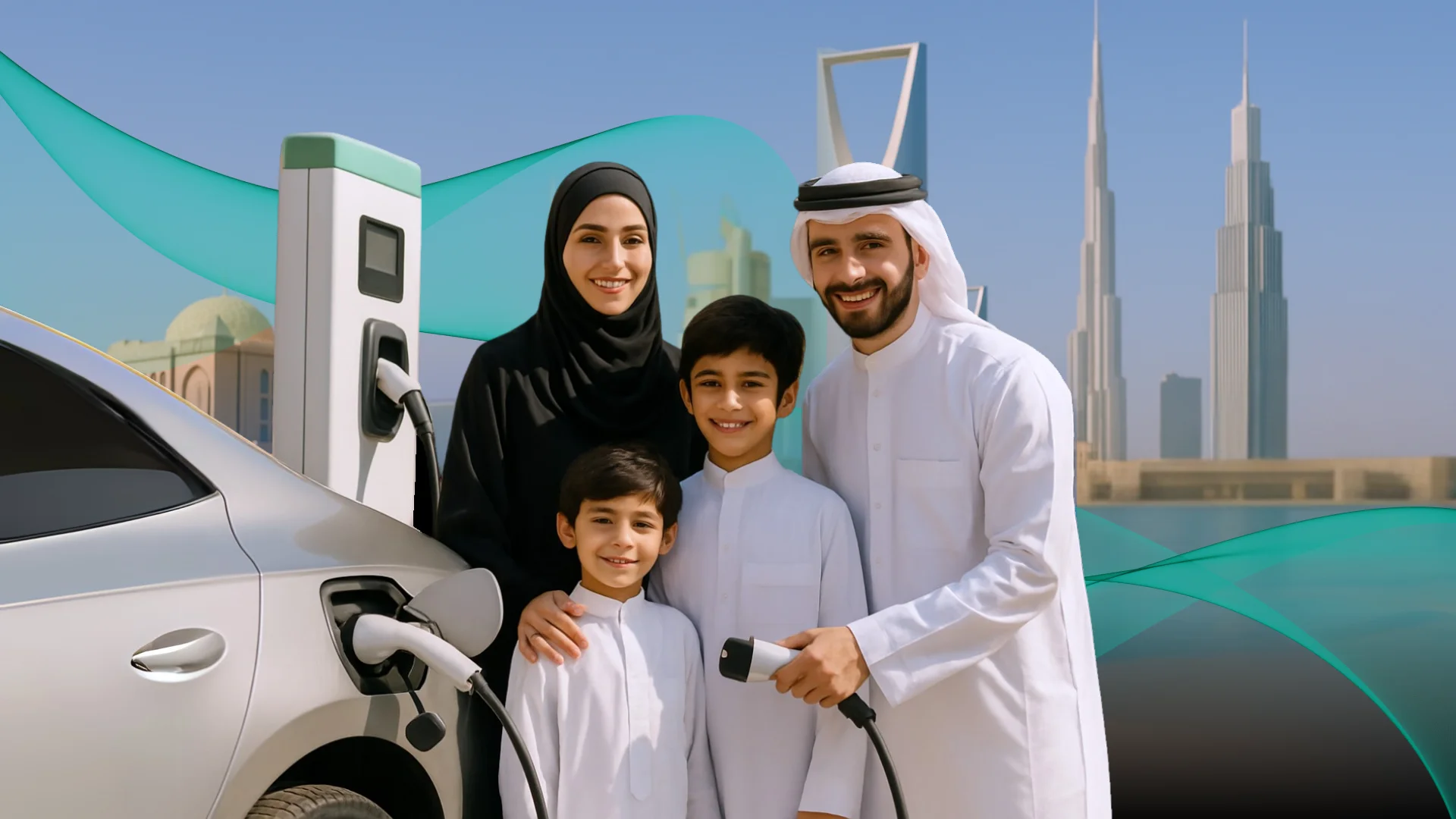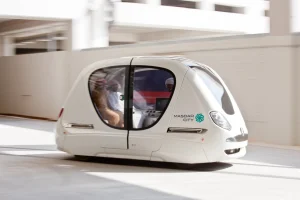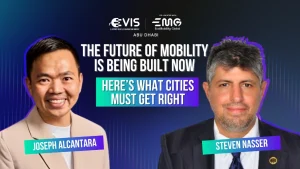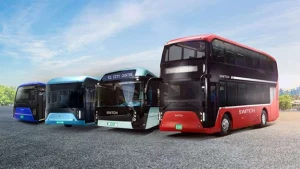A Region in Transformation
As the world shifts toward a low-carbon future, the Gulf region is experiencing a profound transformation. Once defined by oil-driven economies, it is now embracing cleaner alternatives. At the forefront stand the United Arab Emirates and Saudi Arabia, two nations making decisive moves to reshape transportation through electric vehicles (EVs) and sustainable infrastructure.
UAE and Saudi Arabia’s Ambitious Targets
The UAE has set a pioneering target: 50% of all car sales to be electric by 2050. This goal reflects a broader environmental strategy that includes cutting transportation energy use by 40% and reducing transport-related emissions by 20% by 2035.
Saudi Arabia is equally committed. Under Vision 2030, sustainability has become a core pillar. The kingdom’s strategy focuses on lowering greenhouse gas emissions and diversifying energy resources, even as cities grow and demand for transport rises.
Building the Foundations for EV Growth
Both countries are investing heavily in future mobility. Dubai is expanding autonomous metro systems, while Saudi Arabia is developing extensive rail and public transport projects. These efforts aim to reduce reliance on combustion engines.
However, challenges remain. High summer temperatures strain batteries, charging infrastructure is still limited, and EVs remain expensive compared to traditional cars.
Saudi Arabia’s High-Growth EV Scenario
Research from the King Abdullah Petroleum Studies and Research Center (KAPSARC) projects up to 20.7 million EVs on Saudi roads by 2050 under a high-growth scenario. This shift could cut oil demand in the transport sector by 13 million tons of oil equivalent and reduce carbon emissions by 40 million tons.
To achieve this, Saudi Arabia is making massive investments. Riyadh is planning solar- and wind-powered charging stations, while nearly $270 billion is being allocated to modernize and expand the national grid.
Local Manufacturing and Supply Chains
The Public Investment Fund (PIF) is backing EV production. Lucid Motors has begun manufacturing at the King Abdullah Economic City plant, aiming to scale from 5,000 to 155,000 units annually. Meanwhile, Saudi Aramco and Ma’aden are working to secure lithium and transition minerals for regional battery production, anticipating demand to power half a million EVs.
UAE’s Drive Toward Electrification
The UAE is also pushing ahead. Abu Dhabi has committed to a 20% reduction in transport emissions by 2035, while incentives are being introduced to support EV adoption. Neighboring Oman has launched its “Net Zero 3” initiative to transition government fleets to electric vehicles.
Challenges on the Road Ahead
Despite momentum, hurdles remain. EVs still carry a high upfront cost due to battery prices and limited local production. Scaling charging networks across vast desert geographies will take time. Consumer education and the phase-out of fossil fuel subsidies are also essential. Finally, the region must ensure renewable-powered grids remain stable and reliable.
Opportunities for Global Leadership
The opportunities, however, are immense. By embracing EVs, the Gulf can evolve from an oil consumer to a global hub for clean technology innovation and sustainable mobility leadership.
Spotlight on EVIS Abu Dhabi 2026
These developments set the stage for EVIS Abu Dhabi 2026 – the Electric Vehicle Innovation Summit. As the region’s leading platform for electric mobility, the summit will unite global leaders, innovators, policymakers, and manufacturers. The event will showcase advancements, foster collaboration, and push the conversation on sustainable transportation forward.
With the UAE and Saudi Arabia accelerating electrification, EVIS Abu Dhabi 2026 promises to be a defining moment for the Gulf’s role in the global EV revolution.
Don’t miss the chance to be part of the future—where innovation meets impact.
Source: EV Life








